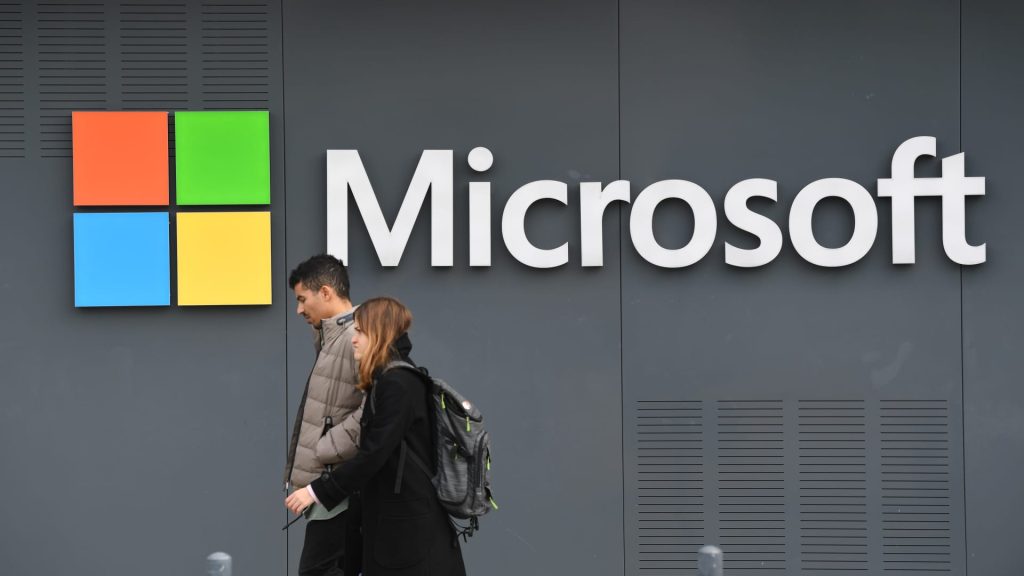Microsoft’s Alarming Discovery China’s Infiltration

Microsoft's Alarming Discovery China's Infiltration
Introduction
In an era dominated by technological prowess and digital connectivity, cybersecurity remains a paramount concern for nations, corporations, and individuals alike. The recent revelation by Microsoft that several US government agencies fell victim to cyberattacks orchestrated by Chinese hackers has sent shockwaves through the cybersecurity landscape. This article explores the details of the breach, the implications it carries for national security and international relations, and the urgent need for collaborative efforts to fortify digital defenses.
The Cybersecurity Landscape: A Breach of Sovereignty
Cyberattacks have emerged as a modern-day threat, transcending geographical boundaries and targeting critical infrastructure, sensitive information, and national security. The recent hack, attributed to Chinese state-sponsored actors, has exposed the vulnerability of even the most fortified networks. The breach underscores the magnitude of the challenge governments and organizations face in safeguarding their digital assets against increasingly sophisticated cyber threats.
Microsoft’s Disturbing Discovery: The Intrusion of US Government Agencies
Microsoft’s cybersecurity experts made a disconcerting discovery: Chinese hackers infiltrated several US government agencies through a breach in an email platform widely used across federal systems. The attackers leveraged a chain of vulnerabilities to gain unauthorized access, potentially compromising classified information and sensitive communication channels. The extent of the damage is still being assessed, highlighting the stealth and complexity of the attack.
A Web of Implications: National Security and International Relations
The breach’s implications extend beyond digital networks into the realms of national security and international diplomacy. Cyberattacks targeting government agencies can provide adversaries with invaluable insights into defense strategies, intelligence operations, and diplomatic communications. Such breaches erode trust between nations and can strain diplomatic relationships. The discovery adds to the growing list of cyber incidents that challenge the status quo of global cybersecurity norms.
China’s State-Sponsored Cyber Espionage: Unmasking Motivations
Chinese state-sponsored cyber espionage has long been a subject of concern for the international community. While motives can be multifaceted, they often encompass the acquisition of strategic information, technological advancements, and military intelligence. The US-China relationship is a complex interplay of economic competition, geopolitical tensions, and mutual dependence. The cyber breach adds another layer of complexity to this intricate dynamic.
The Urgent Need for Collective Action: Strengthening Cyber Defenses
The Microsoft incident serves as a stark reminder that cyber threats are evolving rapidly, with dire consequences for nations and organizations that fall prey to them. The breach underscores the urgency of collective action in fortifying cyber defenses on a global scale. International cooperation, information sharing, and the development of common cybersecurity standards are pivotal in deterring cyber aggressors and mitigating the fallout from breaches.
Redefining Cybersecurity Strategies: From Reactive to Proactive
The Microsoft discovery prompts a reassessment of cybersecurity strategies, advocating for a shift from reactive measures to proactive defense mechanisms. Organizations and governments must adopt comprehensive approaches that integrate threat detection, incident response, and continuous monitoring. A robust cybersecurity posture requires investing in cutting-edge technologies, fostering a cybersecurity-aware culture, and collaborating with experts to stay ahead of evolving threats.
The Role of the Private Sector: A Crucial Partnership
The private sector, particularly technology companies, plays a pivotal role in the fight against cyber threats. Microsoft’s role in uncovering the breach highlights the importance of public-private partnerships in cybersecurity efforts. Collaboration between governments and tech giants can lead to more efficient threat detection, information sharing, and the development of advanced security solutions.
Conclusion
The revelation that US government agencies were hacked by Chinese state-sponsored actors underscores the pressing need for a global paradigm shift in cybersecurity. As digital landscapes become increasingly complex, the threats faced by nations and organizations grow in sophistication and scale. The Microsoft incident serves as a stark reminder that cybersecurity is not solely a technical issue but a matter of national security, international relations, and economic stability.
Addressing this multifaceted challenge requires proactive measures, collective action, and the commitment of governments, private sectors, and individuals alike. Only through a united front can the world hope to withstand and overcome the ever-evolving threats of the digital age.
For More Related Articles Browse Our Website Blogster.pk
For social Connection You can also Visit and follow our Social media Platforms
Facebook , Instagram, Linkedin, Pinterest, Quora, Twitter, Youtube.





